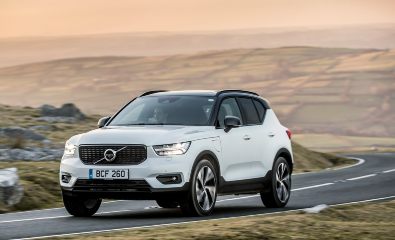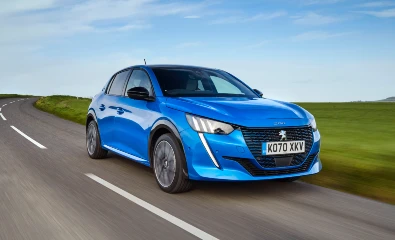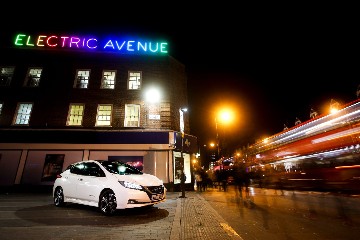When it comes to company cars, there’s far more choice than there used to be. Alongside choosing the size and colour of your vehicle, you now also need to think about whether you want to go electric. Businesses are also sometimes offering employees a company car allowance, rather than the vehicle itself, so you can choose for yourself how to spend the money.
If you’re reviewing your options on whether to take the company car or go for the car allowance, we’ve put together a guide to help you make the right choice.
Contents
- What Is The Difference Between A Company Car And Cash Allowance?
- How Does A Company Car Work?
- The Pros & Cons Of A Company Car
- How Does A Company Car Allowance Work?
- How Is The Cash On The Car Allowance Option Calculated?
- Why Choose Electric Or Hybrid Company Cars?
- How Can I Finance My New Car?
- Should I Take A Company Car Or Company Car Allowance?
- Company Cars and Car Allowance FAQs
What Is The Difference Between A Company Car And Cash Allowance?
A company car is a vehicle provided by employers which can be used by employees for both business and private use.
A car allowance is when a company works out how much they would spend on providing a company car to the employee and instead includes the money as part of their gross monthly salary. This then allows the employee to choose how they want to spend the allowance - for example whether they want to lease a vehicle or buy one outright.
How Does A Company Car Work?
A company car is provided in one of two ways:
User Chooser: The first is called ‘user-chooser’, where the company works out an acceptable budget for a vehicle, then gives the employee a list of a few suitable cars that are available for that money. The employee picks their favourite vehicle from the list and then the company provides it.
Job Need: The second is called ‘job need’. In this scenario, typically the business in question will buy a bulk load of cars all of the same make, model and specification, and then simply hand one of these out to any employee eligible for their company car scheme.
Whichever way the vehicle is provided, all upfront costs for the car should be covered. Employers will also typically look after all of the servicing, maintenance, insurance and road tax costs, leaving you with the simple job of keeping it topped up with fuel (or electric charge) to keep it running. And even then, some companies provide fuel cards or fuel allowances to cover those costs too.
Company vehicles tend to be brand new cars. This is because companies have a duty of care to ensure you’re safe while driving for work. This means they’d far rather you were driving around in a new vehicle that they know is in tip-top condition, instead of using an older and possibly unreliable personal car for work.
The Pros & Cons Of A Company Car
There are pros and cons to having a company car…
Pros Of A Company Car:
-
A brand new car every three or four years.
Your company will want you in a reliable new car, so you get a refresh every three or four years so you get to upgrade to the latest makes and models regularly and won’t be driving the same car long term. -
No depreciation costs.
You never own the vehicle, so you don’t have to worry about the depreciation or what happens to the car after you’re finished with it. -
All servicing and repairs paid for. The company will handle the annual maintenance of the car, meaning you don’t have to dip into your own money to keep the vehicle in its best condition.
-
The company pays for insurance. As with the maintenance, the company will pay for your insurance on the vehicle, so you don’t have to.
-
Better fuel/running costs from lower-consuming cars. You’re in a newer vehicle, you’ll get the latest, most fuel-efficient models automatically.
-
No need to use your own cash or get finance. Unless your company gives you a fuel card or allowance, the only ongoing expenditure you will have with a company car is putting petrol, diesel or electric in it.
-
Low ‘benefit-in-kind’ (BIK) taxation. If you are given a company car and you use it for private mileage as well as business mileage, then you have to pay BIK, commonly known as ‘company car tax’.
It is worked out on the basis of the vehicle’s CO2 output, its P11D value (the list price of the car including extras and VAT, but excluding the first-year registration fee and vehicle excise duty) and your income tax band (either 20- or 40%).
This means newer, less polluting cars are better for paying lower benefit in kind because they produce lower amounts of CO2. Plug-in hybrids and electric cars are even more rewarding financially, because of their super-low emissions.
Cons Of A Company Car:
-
Choice is often limited. Even in the ‘user-chooser’ scenario, you may not be allowed convertibles, SUVs or manufacturers you particularly like, as the company will provide a list of suitable vehicles according to its own set budgets.
-
You pay more tax. A company car that runs on petrol or diesel will typically add £800-£3,000 to your annual tax bill, depending on its CO2 emissions, as part of the BIK calculations. EVs will be lower, sometimes only around £150 or so, but there is still an increased taxation of your salary to consider, as BIK is deducted automatically by your employer.
-
Less flexibility if your personal circumstances change. If your personal circumstances change during the contract, such as you and your partner having a child, you cannot easily change the car to reflect your needs.
-
The car isn’t yours. If you move to a new job without a company car or lose your existing job, you lose your car at the same time. You’ll also need to keep your car in decent condition that aligns with fair wear and tear guidelines.
-
You will need to pay fuel benefit tax. If your company does provide fuel for your vehicle and you have personal use of it, as well as business use, you will still have to pay tax on it. How much this tax will be is worked out by taking the vehicle’s BIK banding and then applying it to a government-set multiplier, before using your tax band to determine the final figure.
As of April 2023, that set multiplier rose to £27,800. So if you had a company car with a BIK rating of 26%, and you were in the 20% tax bracket, you would multiply £27,800 by 26%, which is £7,228, and then multiply that number by 20%, which results in £1,445.60.
That means if you don’t put at least £1,445.60 of fuel into your vehicle every year, a company car may not be for you as you’ll be paying tax on fuel you’ve not actually received.
- You may not build a no-claims bonus for insurance purposes. The company arranges all insurance, so you will not personally build up a no-claims bonus yourself. You therefore might be faced with higher car insurance costs in the future.
Ultimately, only you can decide if the company car is the right option for you.
How Does A Company Car Allowance Work?
When it comes to a company car allowance, instead of giving you a vehicle, your company will work out how much it would otherwise have spent on a vehicle and give you that amount per month as part of your gross (pre-tax) salary. They would then expect you to source and finance a car yourself with the money.
Pros Of A Company Car Allowance:
-
Freedom of choice.
Instead of being given a shortlist of cars that meets the employer’s requirements, or simply being handed a car, you can choose whatever vehicle you want, as long as it’s financially viable. Some employers will still set some minimum specifications for the vehicle, though, which may require a certain number of seats or doors etc. -
You can choose whether to lease or buy the car. With the allowance, you could choose to buy a vehicle so that you own it and will therefore keep it, should you leave the company. Alternatively, you can choose to lease a car, which is the most affordable way of getting into a brand-new vehicle. Find out more on whether buying or leasing a car is right for you.
-
Income boost. You might already have use of a reliable, safe car that you could use for work purposes so you can use the money elsewhere. Or the cash sum could be used to service, maintain, insure, tax and fuel your personal vehicle, offsetting your own financial outlay.
-
Potential profit. If you choose to buy a vehicle with a company car allowance, you get to keep any sale proceeds from that car if you sell it in the future.
Cons Of A Company Car Allowance:
-
You’re responsible for the finance.
Whether you choose to lease or buy a car, you will be responsible for the ongoing payments associated with having that vehicle. -
The allowance may change. The car allowance is taxed at source, so the level of your own personal income tax will determine how much money your company will give you each month. Those paying the higher rate of income taxes may therefore be better off with a company car.
-
You’ll be responsible for running costs. As with the initial financing of the car, you’re also responsible for and liable to pay for servicing, insurance, maintenance, road tax and fuel costs on the vehicle if you choose the company car allowance instead.
-
Lots of miles could leave you out of pocket. Government-approved mileage rates drop from 45p-per-mile to 25p-per-mile after the first 10,000 business miles, so if you do much more than 10,000 miles a year and you end up putting in more fuel than you can claim back through mileage, you will be out of pocket.
How Is The Cash On The Car Allowance Option Calculated?
Your employer will calculate how much it’s currently spending on your company car and then provide a similar amount to you. They will also calculate how much employer tax they pay on your car, what basic tax rate you pay and finally whether they are looking to incentivise the taking of cash allowances.
Once you know the gross amount to be added to your salary, you can calculate how much you have to spend. Bear in mind that you not only have to finance a car, but also insure and maintain it.
Can I Use My Car Allowance Vehicle For Business?
This is ultimately down to your employer’s policy on company travel. Most companies are happy for employees to use their own vehicles for business, as long as business insurance is included in the driver’s motor insurance policy. There may also be restrictions on the maximum age of the car you can use. You will need to ensure that the vehicle has a current MOT if more than three years old, and that all its tyres and other consumables are legal.
If you use your car on business, you will normally be paid Government Approved Mileage Allowance Payments (AMAPs) to compensate you for those additional miles. Currently this pays 45p per mile for the first 10,000 business miles per annum you drive and reduces to 25p per mile thereafter.
If your employer does not pay the full amount (they are not legally obliged to do so), then you can claim the difference when completing your tax return. It is important that you keep detailed records of your journeys, both for your employer or any tax return claim.
Why Choose Electric Or Hybrid Company Cars?
The main benefit of switching to an electric or plug-in hybrid vehicle as a company car is the benefit-in-kind (BIK) tax bandings. Electric cars and PHEVs put out very low levels of CO2, or absolutely no CO2 in the case of EVs, and this is the key factor in how much BIK you pay.
Electric Car BIK Rules: as they emit nothing from their tailpipes (zero emissions), they qualify for the lowest rate of BIK of 2%, which will hold for each of the next three tax years (2022/23, 23/24 and 24/25). That's why electric cars are such a good choice for company users, provided said users do not do high mileages every single day, in which case the range limitations of an EV then have to be taken into account.
Plug-In Hybrid BIK Rules:
There is a sliding scale of tax for cars emitting between 1-50g/km of CO2. It is based on miles the PHEV in question can go on electric power alone and will hold for the next three financial years for each banding.
130 Miles +: For any PHEV which can do more than 130 miles on electric power, the annual BIK rate is the same 2% as an EV... but don't get too excited, as no PHEV currently on sale can get anything close to this distance without having to use its onboard combustion engine.
70-129 Miles: To qualify for 5% BIK with a PHEV, the vehicle needs to do between 70 and 129 miles on electric power alone and anything between 40 and 69 miles on electric power alone qualifies for 8% BIK.
30-39 miles: The rate rises to 12% and for less than 30 miles, you're looking at 14%.
For any PHEV which emits more than 50g/km, and for all internal-combustion engine cars available to lease today, the BIK rises by one percentage point for every extra 5g/km of CO2 the car emits.
So 51-54g/km is 15%, 55-59 is 16%, 60-64 is 17% and so on, until you get to 160-164 g/km, whereupon the rate of BIK reaches 37%. This is the maximum BIK that can be applied, so all cars which emit 160g/km of CO2 or more are subject to the maximum tax requirements.
To help you choose the most BIK efficient vehicle, take a look at our list of the best company cars.
How Can I Finance My New Car?
There are numerous ways you can finance your new car. If you want to own the car, the simplest options are a bank loan or hire purchase (HP) agreement. Once you've paid all of the HP monthly instalments, the car is yours to keep.
If you're not bothered about owning the car, you could consider personal contract hire (also known as personal car leasing). Like PCP, it offers lower repayments than a bank loan. You pay a deposit plus fixed monthly amounts, and hand the car back at the end of the term. Again, get your mileage prediction right otherwise you will pay excess mileage. Learn more about PCH vs PCP in our easy-to-understand guide.
To find the right personal lease, you need to decide how much mileage you are likely to travel per annum, how long you want to keep the car for and whether or not you want maintenance included. You also need to be clear how much money you can afford for the initial payment.
Should I Take A Company Car Or Company Car Allowance?
With company car allowance taxed at source, the key factor will be your income tax as this determines how much allowance you’ll be eligible for. This means that a higher rate tax payer might benefit more from choosing a company car than a car allowance. The example we’ve put together below helps to explain all of the factors you should consider before making your decision:
Here's An Example:
Mike is currently driving a BMW 320d Sport company car. He likes the BMW but thinks the time is right to look at an electric vehicle. This has come at the right time as his company is now offering a swap from a company car to a cash allowance.
-
Mike is a 40% taxpayer, so on the BMW he is currently paying £416.35 a month in BIK.
-
His company has offered him £475 per month for the cash allowance, so after income tax and National Insurance has come off, he will have around £313 of extra income.
-
Mike is still happy with his current outlay of £416.35 per month so with the allowance he now has a budget now of £729.35 to finance, insure and run a car.
-
Mike sees that he can lease a Kia EV6 GT Line 166kW 77.4kWh (with a range of 328 miles) for £544.86 per month.
-
His running costs going forward will be insurance, servicing and charging, plus the one-off fee of installing a home wallbox charger – typically around £1,000. The home charger will allow Mike to charge from home most of the time, taking advantage of lower electricity costs and roughly halving his ‘fuel’ bill from his BMW across the course of 5,000 business miles per annum. (Electric vehicles with predominantly home charging cost around 6p per mile, rather than circa 12p for vehicles run on fuel costing £1.50 a litre.)
So, with lower running costs, plus an additional £184.49 in his pocket each month which is an extra £2,213.88 per annum of income, Mike decides to take the company car allowance.
Company Cars and Car Allowance FAQs
Do You Get Taxed On Company Car Allowance?
Yes, you have to pay income tax and National Insurance contributions at source, which means your employer will automatically deduct these contributions from your increased salary.
Can I Claim 45p-Per-Mile If I Have A Car Allowance?
You can for business mileage only, but this rate applies for the first 10,000 miles of use per annum. After that figure, it drops to 25p-per-mile.
How Do I Avoid Paying Tax On A Company Car?
You can’t avoid it totally but you can considerably reduce your company car tax bill by choosing either a plug-in hybrid (PHEV) or an electric vehicle. This is because company car tax, otherwise known as benefit-in-kind or BIK, is calculated on the CO2 output of the car in question. And PHEVs have incredibly low CO2 outputs, usually less than 50g/km, while EVs are even better because they emit no tailpipe CO2 at all, making them the cheapest vehicles on the market for BIK purposes.
Do I Need To Tell HMRC If I Have A Company Car?
Yes, you do need to declare it, although in most cases your employer’s finance department will notify HMRC if the business is providing vehicles for directors or employees as part of their job.
How Much Does Having A Company Car Add To Your Salary?
It doesn’t add anything to your salary but it qualifies as a benefit or perk on top of your income, which is why it incurs a BIK taxation contribution as a result.
What Is The 2023 HMRC Car Allowance Mileage Rate?
The official mileage rates are 45p-per-mile for the first 10,000 business miles per year, dropping to 25p-per-mile for any mileage above this figure.
Find out more about how leasing a car works by taking a look at our handy guides or check out our latest car leasing special offers.







